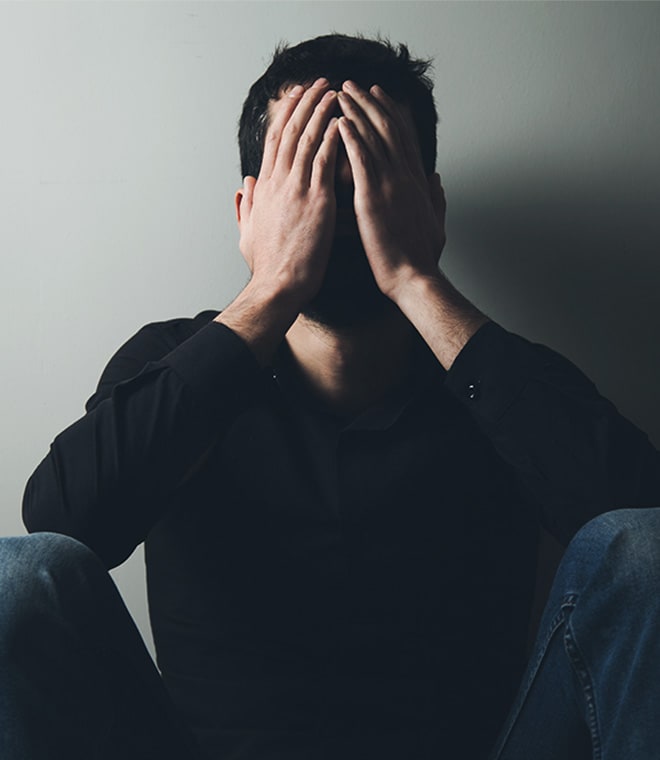Wellness
Medications for anxiety: What are the options?
By Andy Stergachis, PhD, BPharm Nov 14, 2024 • 9 min
Anxiety affects many people at some point during their lives. Symptoms of anxiety can include excessive worry or fear along with physical symptoms, such as muscle tension and tiredness. While having some anxiety can be a healthy response to uncertainty and threats, people who experience constant worry and nervousness may have a mental health condition called generalized anxiety disorder. Generalized anxiety disorder (GAD) can interfere with everyday functioning and activities, including work, school, social plans, and personal relationships. Other types of anxiety disorders-- such as panic disorder (PD), social anxiety disorder, and specific phobias, often arise from specific situations and can cause similar symptoms of worry and distress. Fortunately, there are medications and therapies that can help treat anxiety.
How is anxiety treated?
People who have an anxiety disorder are usually treated with psychotherapy (“talk therapy”), medication, or a combination of both. Some common types of medications used to treat anxiety disorders are antidepressants, anti-anxiety medications, such as benzodiazepines and buspirone, and beta blockers. In some cases, you may need to take more than one medication. You should work with your healthcare provider to find a treatment for anxiety that works best for you.
Note that your healthcare provider may prescribe other medications to help manage your symptoms that are not approved by the U.S. Food and Drug Administration (FDA) to treat anxiety. This is called “off-label” use of a medication. Examples of medications used off-label to treat anxiety include beta blockers and anticonvulsants.
Antidepressants used for anxiety
Antidepressants, particularly selective serotonin reuptake inhibitors (SSRIs) or serotonin-norepinephrine reuptake inhibitors (SNRIs), may be used as first-line treatments for generalized anxiety disorder or panic disorder. Examples of commonly used SSRIs to treat anxiety include escitalopram (Lexapro), fluoxetine (Prozac), paroxetine (Paxil) and sertraline (Zoloft). Serotonin-norepinephrine reuptake inhibitors (SNRIs) that may be used to treat anxiety include duloxetine (Cymbalta) and venlafaxine (Effexor).
Antidepressants may take up to several weeks to work, but they also may provide long-term symptom relief for some people. It is important to take antidepressants exactly as directed by your healthcare provider. You should not stop taking a prescribed antidepressant without talking to your healthcare provider first. You may need to gradually “taper” or reduce your dose rather than stopping suddenly, to avoid withdrawal symptoms or other side effects.
Benzodiazepines used for anxiety
Benzodiazepines are a type of short-acting medication that is commonly used for anxiety symptoms. This type of medication tends to provide more immediate anxiety relief than other types of antidepressant medications. However, you can build up a tolerance to them over time, which means you may need a higher dose for the same effect. For this reason, your healthcare provider may only prescribe benzodiazepines for a short period of time or for certain anxiety-inducing situations. Benzodiazepines and antidepressants may sometimes be prescribed together. Benzodiazepines can treat symptoms of anxiety during the time it takes for an antidepressant to reach full effect. Once the antidepressant begins to work well for you, your healthcare provider may have you taper off the benzodiazepine. Examples of benzodiazepines include alprazolam (Xanax), chlordiazepoxide (Librium), diazepam (Valium), clonazepam (Klonopin) and lorazepam (Ativan).
Other medicines used for anxiety
Buspirone (Buspar), hydroxyzine (Atarax) and meprobamate (Miltown, Equanil) may also be used to manage anxiety.
What medications are used for panic attacks?
For panic attacks, you may be prescribed SSRIs, such as fluoxetine (Prozac), sertraline (Zoloft), paroxetine (Paxil), or the SNRI venlafaxine (Effexor) for the symptoms of panic attacks. Antidepressants generally take several weeks to start working and may not result in immediate relief of symptoms of panic attacks. Benzodiazepines such as alprazolam (Xanax), clonazepam (Klonopin), chlordiazepoxide (Librium), diazepam (Valium) and lorazepam (Ativan) may be used to help decrease panic attack symptoms more immediately.
What medications are used for social anxiety disorder?
The SSRIs sertraline (Zoloft) and paroxetine (Paxil) and the SNRI venlafaxine (Effexor) are often used to treat social anxiety disorders. Other options used for the treatment of social anxiety disorder include benzodiazepines.
What are the side effects of medications used for anxiety?
Like all medicines, medications for anxiety have the potential to cause side effects. Specific side effects may vary, depending on the type of medication. If you experience side effects from your medication, you should speak to your health care provider. You may need to try a different medication. It is important that you take all medications as prescribed and don’t suddenly stop taking your anxiety medication without first contacting your healthcare provider, as you may experience withdrawal symptoms. When you and your healthcare provider have decided it is time to stop a medication for anxiety, they can help you slowly and safely decrease your dose.
SSRIs and SNRIs may not cause as many side effects as older antidepressants, such as tricyclic antidepressants and monoamine oxidase inhibitors (MAOIs). Side effects of SSRI and SNRI antidepressants may include sexual problems, changes in appetite, which may result in weight gain or loss, headache, nausea, sleepiness and insomnia (trouble falling or staying asleep). In addition, the FDA requires all antidepressants to carry a warning about the potential risk of suicide in children and young adults. According to the FDA, antidepressant use in children and teens must be monitored carefully because serious side effects can happen in rare cases.
Benzodiazepines can cause drowsiness, dizziness, blurred vision, nausea, headaches, confusion, tiredness, nightmares and physical dependence. People who take benzodiazepines can build up a tolerance if the medications are taken more long-term. This means that over time, a person may need higher doses to get the same effect. Some people may even become dependent on them.
Non-prescription products for anxiety
There are limited studies to support non-prescription nutritional or herbal supplements for the treatment of anxiety. Some people have used herbs to aid in relieving anxiety symptoms. Herbal remedies may have calming effects, but these are generally mild, and none are approved by the FDA for treatment of anxiety. Some herbal products, such as St. John’s Wort, may interact with other medications you usually take or worsen other health conditions you may have. You should consult with your healthcare provider before taking any over-the-counter medications, supplements, herbs, vitamins, and minerals that are new to you. They can identify possible drug interactions and help find a treatment plan that works for you.
Updated by Julie McDaniel, MSN, RN, CRNI, November 2024.
Sources:
- https://www.psychiatry.org/patients-families/anxiety-disorders/what-are-anxiety-disorders
- https://www.nimh.nih.gov/health/topics/anxiety-disorders/index.shtml
- https://www.aafp.org/pubs/afp/issues/2022/0800/generalized-anxiety-disorder-panic-disorder.html
- https://www.nimh.nih.gov/health/topics/mental-health-medications/index.shtml
- https://www.nimh.nih.gov/health/publications/panic-disorder-when-fear-overwhelms/index.shtml
- https://www.uptodate.com/contents/generalized-anxiety-disorder-in-adults-management
- https://www.uptodate.com/contents/social-anxiety-disorder-in-adults-treatment-overview
- https://www.uptodate.com/contents/panic-disorder-in-adults-treatment-overview
- https://www.mayoclinic.org/diseases-conditions/depression/in-depth/maois/art-20043992
- https://www.mayoclinic.org/diseases-conditions/depression/in-depth/antidepressants/art-20046983
- https://adaa.org/find-help/treatment-help/medication-options
- https://www.nccih.nih.gov/health/anxiety-and-complementary-health-approaches
- https://www.mayoclinic.org/drugs-supplements-st-johns-wort/art-20362212
- https://www.mayoclinic.org/diseases-conditions/depression/in-depth/ssris/art-20044825
- https://www.mayoclinic.org/diseases-conditions/depression/in-depth/antidepressants/art-20044970
- https://www.fda.gov/drugs/postmarket-drug-safety-information-patients-and-providers/suicidality-children-and-adolescents-being-treated-antidepressant-medications



